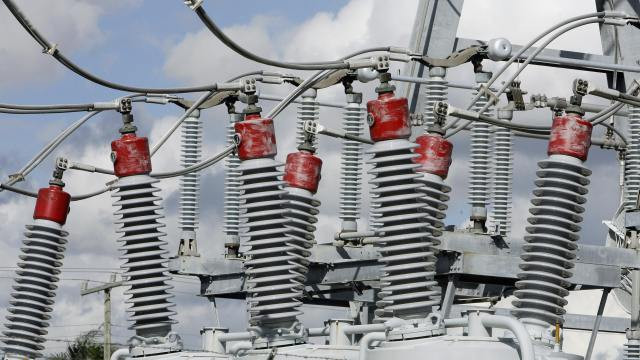Load-shedding: Power sector governance - a lost hope
Politics of clientelism, lagging technical and managerial skills holding sector back

PHOTO: AFP
Various policy experiments have been carried out as so-called remedy of power sector crisis, giving false hopes.
Policy priority: All efforts being made to end load shedding, says Shahbaz
Payments to the power sector in lieu of circular debt and tariff differential subsidy exceeding Rs1,200 billion and Rs2,000 billion, respectively, since 2008 have been unable to resolve the crisis. Massive injections of public money, political promises and addition in power generation; all have failed to improve power sector.
The reason behind this abysmal situation is ignorance of institutional dynamics, professional capacity constraints in the sector and dismal governance of the power sector.
The failed experiments
This government’s tenure is tainted with a few failed experiments. First initiative was to engage the Federal Investigation Agency (FIA) and National Accountability Bureau (NAB) for eradicating electricity theft and enhancing recoveries. No significant progress was made and it faded after a short time.
Another attempt, highlighted in the media, was video conferencing with CEOs and senior management of Distribution Companies (DISCOs) along with surprise raids of sub-divisions and grids by a top bureaucrat. Nothing was achieved.
Gas load-shedding enrages business community
A similar attempt was made to develop live dashboards and fancy graphics for monitoring electricity theft and recoveries. It has not yielded much. Though it was essential to clear backlog of circular debt of about Rs500 billion when the current government came into power, it was presented as a long term solution. However, only a partial relief could be achieved through this effort as obviously it was not a sustainable solution.
Tariff increase is another popular move in few circles which has also failed to produce results. Conversion from expensive fuel to coal and Re-gasified Liquefied natural gas (RLNG) is lagging behind the promised schedule. Now, the entire focus is on public sector funded RLNG and coal based generation power projects.
On one side, it is appreciable that the government has initiated disinvestment in power sector, as many of the problems currently faced including efficiency and capital requirements may not be resolved under the complete control of the public sector.
However, it is surprising to note that at the same time, the government has initiated many public sector generation projects in renewables, coal and RLNG which negate the government’s disinvestment policy.
There is a need to be cognisant of political economy of the power sector. The process of appointments and transfers of Sub Divisional Officers (SDOs), Executive Engineers (XEONs) and other key field staff is highly political and embedded with local politics of clientelism.
Demo against prolonged load-shedding
During the previous government, one of the top cabinet members developed a tussle with another parliamentarian of the ruling party over appointment of an SDO in their respective constituency. In such an embedded structure of inefficiencies, allegiance lies with political frontrunners rather than efficiency.
Quality human resource can really help improve state of governance in power sector. But a close look at profiles of current CEOs and board members of power sector companies will astound the citizens.
Moreover, continuous battles between Ministry of Water and Power and a few boards is another lagging factor. Corporate governance compliance assessment of all power sector companies should be carried out by Securities and Exchange Commission of Pakistan (SECP) with the help of a third party.
National Electric Power Regulatory Authority (Nepra) has a key role in regulating and improving standards of service delivery in power sector. The government may be appreciated for appointing a technical person as the Nepra chair instead of retired civil servant.
However, other issues continue to impede Nepra’s performance. Appointment of members by provinces without any specified criteria is a serious loophole in the system. There is a need to build professional and technical capacity of the authority itself. NEPRA needs to be given greater mandate. For instance, vetting and sacking CEOs but only after a clear framework to assess performance has been developed.
Without addressing key governance challenges such as politics of clientelism, lagging technical/ managerial skills and dismal corporate governance, redemption of the power sector is unlikely.
The writer is a doctoral student in Public Policy at University of Delaware, USA and has served as a governance specialist in the Ministry of Finance in the past
Published in The Express Tribune, January 4th, 2016.
Like Business on Facebook, follow @TribuneBiz on Twitter to stay informed and join in the conversation.



















COMMENTS
Comments are moderated and generally will be posted if they are on-topic and not abusive.
For more information, please see our Comments FAQ